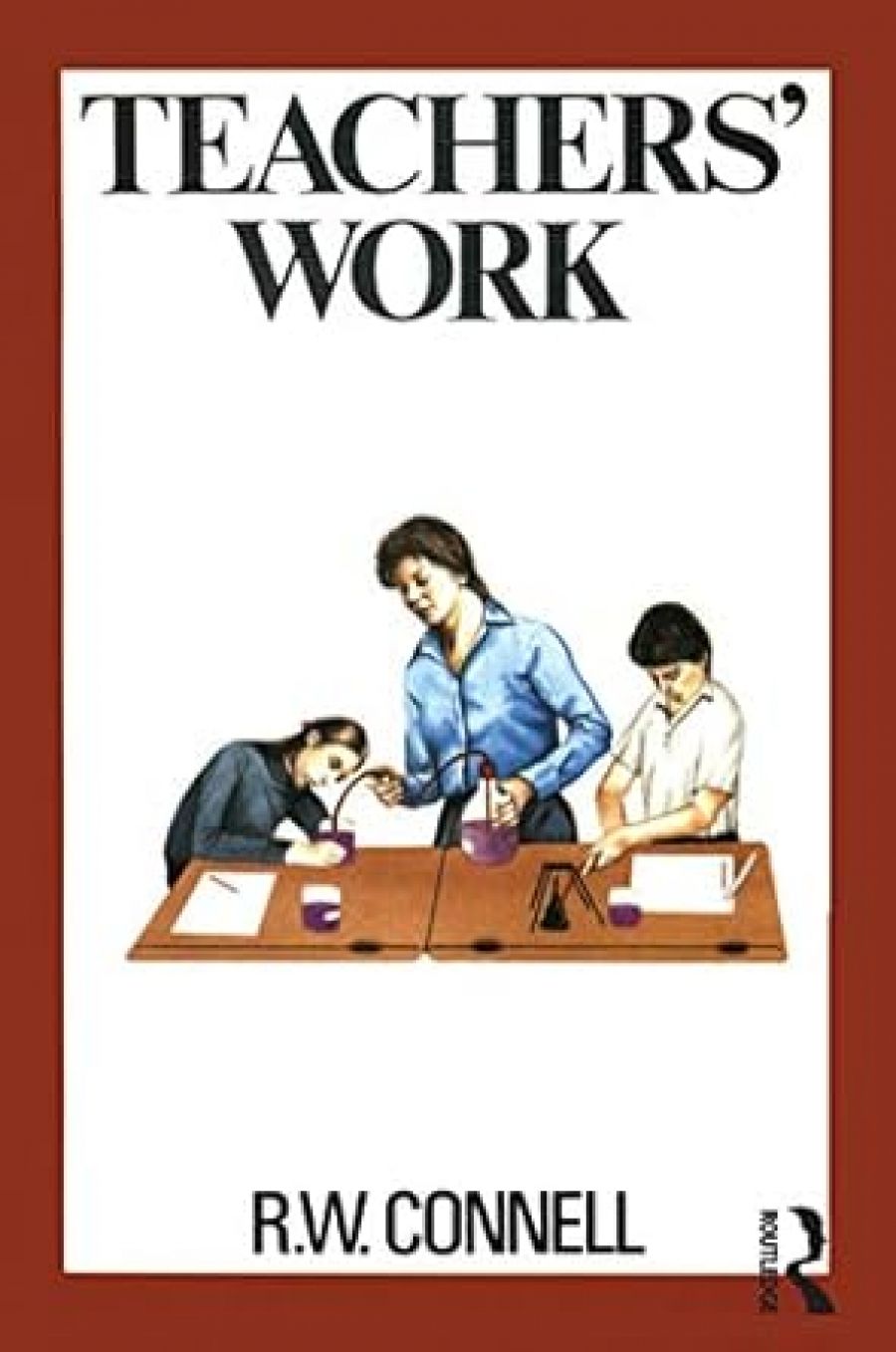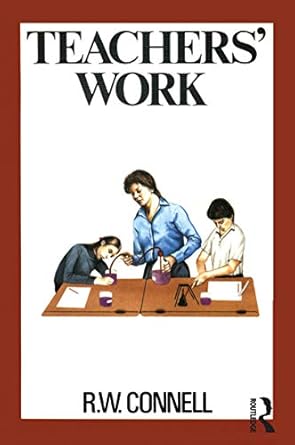
- Free Article: No
- Contents Category: Fiction
- Review Article: Yes
- Article Title: Teachers at Work
- Article Subtitle: A useful look inside schools
- Online Only: No
- Custom Highlight Text:
I doubt if there has been a book like R. W. Connell’s Teacher’s Work. It aims at presenting to the lay reader the detail and nitty-gritty of life and work in schools from teachers’ day-to-day perspectives. The book successfully illuminates much of the routine of a teacher’s work and the way schools operate – at least in New South Wales in the late 1970s. However, this is one of the book’s problems. Because both time and place are so specific, there is a real problem about relevance. I felt many of the comments did not apply as clearly to Victorian state education as they obviously did to NSW. In particular, important initiatives in Victoria like the creation of post-primary schools (combining. High and Secondary schools) and the important Blackburn Report, inquiring into post-compulsory education in Victoria, limited the books usefulness. Furthermore Connell’s assertion that schools and teachers are essentially conservative (a statement with which I basically agree) partly ignores the fact that education is having to deal with quite massive changes.
- Book 1 Title: Teacher’s Work
- Book 1 Biblio: Allen & Unwin, $15.95 hb, $7.95 pb, 218pp
- Book 1 Cover Small (400 x 600):

- Book 1 Cover (800 x 1200):

. Nevertheless, this is a valuable text as it does attempt to deal in plain language, largely free of ‘academic jargon’ (as Connell says himself on p.16) with what goes on in schools, how kids and teachers react, what changes schools are facing and how they may be able to cope. It will hopefully make the work of schools more accessible to parents and others. This issue of accountability illustrates my earlier comment about relevance. Victoria has recently instituted a series of reforms aimed at encouraging schools to be more responsive to parent demands and more open in terms of decision-making. Principals in Victorian schools are now basically chosen by the school council. In Teachers Work, Connell argued that such local control was only available to private schools.
Similarly, other Victorian , initiatives, such as the previously mentioned Blackburn report dealing with the problems of post-compulsory education, increasing retention rates and particularly the attempts by governments to accelerate this trend, are all issues which impinge directly onto teachers’ work.
It is very salutary, however, to have Connell refer to the teaching process as ‘labour’ and to dispense once and for all with the ‘Mr Chips’ image. Connell also asks a question which is not asked often enough (and when it is, it’s often asked for the wrong reason and by the wrong people such as new-right ideologues like Lachlan Chipman): just what do schools produce?’ The answer, while necessarily intangible, is real and again expressed in the language of work as the ‘outcomes of labour’. They produce citizens (sometimes less than adequately informed), ideas, attitudes and interactions, which goes to suggest that it is an ephemeral occupation, despite its clearly being work. Many of the teachers admit, in the interviews which constitute a substantial part of the book, that they teach by ‘feel’.
Connell also has interesting things to say about the curriculum and the bias of schools towards what he calls a ‘hegemonic curriculum’ (slipping into jargon despite himself?). He does here move into an interesting area with his contention that the conservative academic bent of most schools does have constricting influence upon many schools, especially those he sees as ‘working class’. (One of his problems is that he doesn’t really define working class except to imply that virtually all state schools are working class.) I’m also not sure that his criticism of this curriculum isn’t too far-reaching, suggesting as it does that there is little of value to working class kids, no matter how he defines them, in the existing curriculum. Does he really mean Shakespeare isn’t worth studying if you’re working class? And he doesn’t take into account developments like the S.T.C. course in Victoria, where schools have attempted to create a Year 12 syllabus based upon student participation and involvement without reducing it to the level of a ‘Mickey Mouse’ course.
Despite these reservations, this is an interesting and valuable book, mostly through its emphasis upon the need to encourage ‘good teaching’ (while recognising the difficulty of defining it and not referring at all to its opposite, bad teaching, and how to deal with that), its exploration of the lives of teachers at work, the relationships within schools, The need for schools to respond to change and particularly the need to democratise the curriculum.


Comments powered by CComment